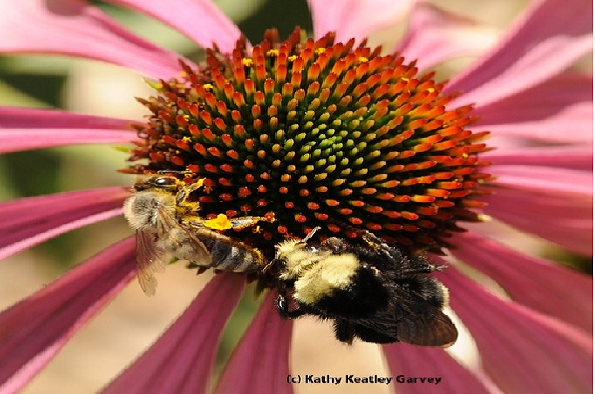
Microbial Transmission and Influence on Pollinator Health
- Seth Barribeau
- Suitable for: Staff and students with an interest in Behaviour, Evolution, Ecology and Microbiology
- Admission: Free
Add this event to my calendar
Click on "Create a calendar file" and your browser will download a .ics file for this event.
Microsoft Outlook: Download the file, double-click it to open it in Outlook, then click on "Save & Close" to save it to your calendar. If that doesn't work go into Outlook, click on the File tab, then on Open & Export, then Open Calendar. Select your .ics file then click on "Save & Close".
Google Calendar: download the file, then go into your calendar. On the left where it says "Other calendars" click on the arrow icon and then click on Import calendar. Click on Browse and select the .ics file, then click on Import.
Apple Calendar: The file may open automatically with an option to save it to your calendar. If not, download the file, then you can either drag it to Calendar or import the file by going to File >Import > Import and choosing the .ics file.
Insect pollinators play important roles maintaining crop production and ecosystem stability – a service valued at over €150 billion per year. In the majority of landscapes bees are the most common and valued pollinators; however there is growing evidence of widespread declines in bee populations. In order to maintain food security and wild ecosystem health the maintenance of healthy bees is an important challenge. One of the major causes of bee declines is thought to be the effects of harmful parasites spreading across populations. Despite this, we know very little about how parasites spread horizontally between individuals or species. In addition, a diversity of microbes residing within bee guts can play a role improving bee health through a number of mechanisms including parasite defence and detoxifying harmful foods. The microbial ecology of bees is therefore an important component of their health via the presence and balance of both microparasites and microsymbionts. Here I will discuss findings relating to the threats and transmission routes of microparasites across wild bee communities before presenting a pioneering method to engineer microbial communities within the bee guts that improve host health.
